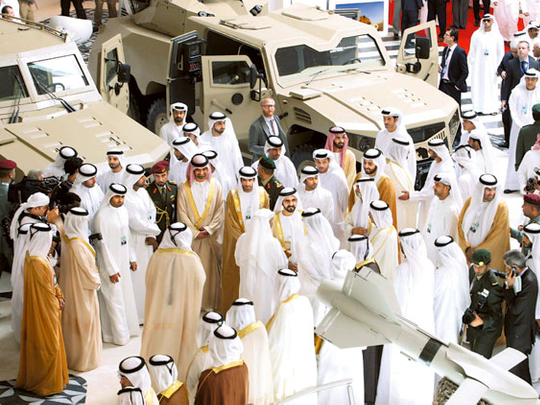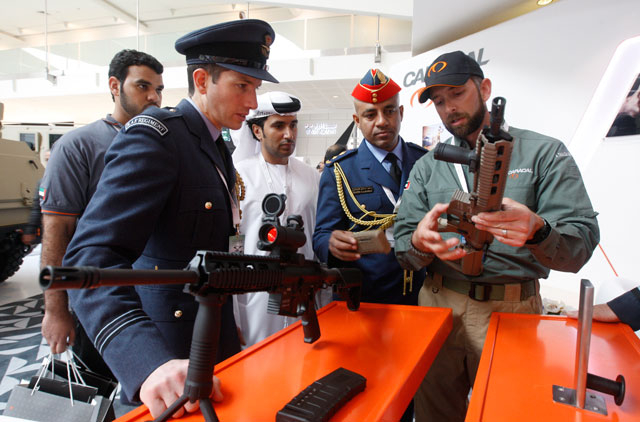
Abu Dhabi:
A growing population, rapid airport expansions and a shift towards alternative energy sources are boosting demand for security systems in the UAE and Gulf countries, a top official at the American defence contractor Raytheon Company said.
“In the GCC, we see command and control, border security and critical infrastructure protection — both on land and maritime — such as oil platforms and port facilities are the main [demand] drivers,” Matthew Riddle, president of Raytheon International Inc, told Gulf News on the sidelines of Idex yesterday.
The population growth in the GCC has seen more desalination plants crop up and the move towards alternative energy sources has led to more solar farms — facilities which require security systems to secure their borders, he said.
As the region becomes a transit hub for airline passengers, Raytheon has seen the demand for air traffic control systems in Dubai, he said.
Raytheon’s AutoTrac III, an air traffic control system, will soon come into operation at the Dubai International Airport and Al Maktoum International Airport, he said. It also sold AutoTrac III to India and Hong Kong and its air traffic management systems control 60 per cent of the world’s air space, according to the company.
Airlines can have fuel savings of 5-10 per cent through efficient traffic control which avoids burning fuel when circling or during taxiing, said Caroline Harris, director of international communications at Raytheon.
“If you think about airlines here, with Emirates and Etihad buying big new fleets, the traffic increase is enormous. This system addresses that traffic. By organiszing traffic efficiently and reducing delays you can put more planes in the sky,” she said.
During Idex, the company unveiled outside the US for the first time the Mobile Range, a product used to collect data during missile testing on the speed and performance of missiles.
“We don’t develop products in vacuum, we develop them to meet the needs of the customer,” said Riddle.
The Mobile Range can even become a “source of revenue-generation” for the UAE if other countries tested their missiles here instead of abroad, said Braaden Shmidt, a missiles expert at Raytheon. “The advantage of Abu Dhabi and the UAE is that they have the geographical resources to test here...the desert is perfect for basic testing.”
The Mobile Range can be set up in four hours and deployed on land or at sea, he said.
About 30 per cent of Raytheon’s business is contributed by its international markets, according to Riddle.













